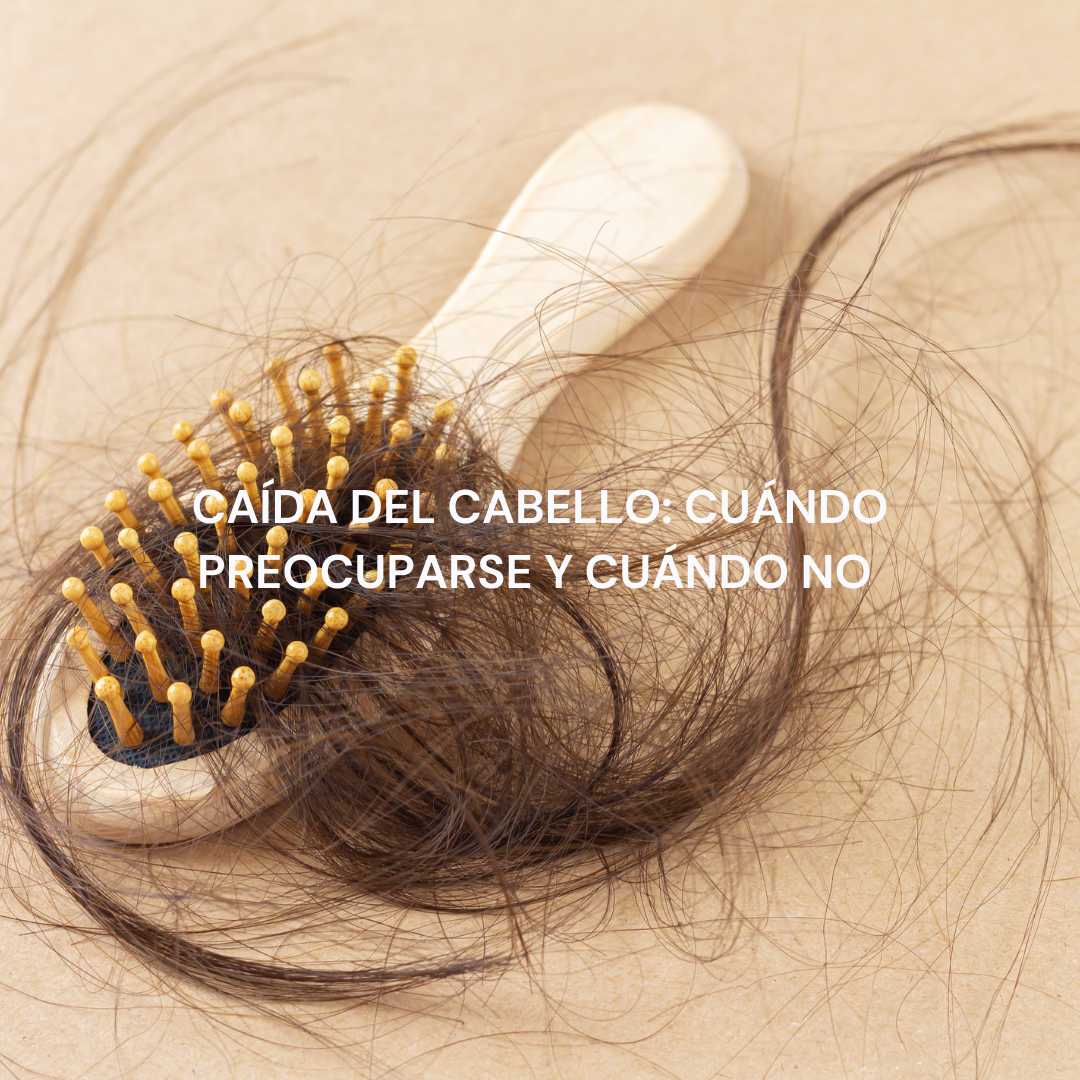
Hair loss: when to worry and when not to
Compartir
Hair loss is a natural process that affects everyone to a greater or lesser extent. However, it's not always easy to differentiate between normal hair loss and what could be worrisome. Although it's common to notice an increase in hair loss during certain times of the year, such as in the fall, it can sometimes be a sign of a bigger problem. In this article, we explain when hair loss is seasonal and when it's necessary to see a specialist.
When is hair loss normal?
Most people naturally lose between 100 and 150 hairs a day. This cycle of hair loss and growth is part of the hair renewal process. However, factors such as stress, hormonal changes, diet, and the season can influence the amount of hair we lose.
Below, we'll detail the different types of hair loss and how to identify whether it's normal or if you should seek professional help:
1. Seasonal hair loss
During the fall, it's common to notice an increase in hair loss. This is due to the natural cycle of the hair follicle, which tends to shed more hair during this time of year. This type of seasonal hair loss, also known as telogen effluvium , usually doesn't require treatment and resolves spontaneously.
Signs of seasonal hair loss :
- Increased hair loss is observed when brushing or washing.
- The hair that falls out is usually distributed throughout the scalp, without specific sparser areas.
- The process is temporary and usually lasts between 2 and 4 months.
2. When hair loss becomes a problem
While seasonal hair loss is normal, there are situations in which hair loss can be indicative of a larger problem. It's important to know when to be concerned and consult a dermatologist specializing in hair health.
Warning signs :
- Excessive and prolonged hair loss : If hair loss persists for more than 4 months and you notice a noticeable decrease in density, it's time to worry. This could be a sign of alopecia.
- Visible Scalp : If your scalp begins to thin or you notice thinning areas, especially at your hairline or crown, you may need medical attention.
- Thinning and Weakening Hair : If your hair thickness is noticeably reduced, it could be a sign that your hair follicles are weakened.
3. Other signs of pathological hair loss
In addition to loss of density, there are other signs that may indicate a more serious condition. Here are some of the symptoms that may require a consultation with a dermatologist:
- Hair loss in eyebrows or eyelashes : When hair loss is not limited only to the scalp, but also affects other areas of the body such as the eyebrows or eyelashes.
- Circular bald spots : The appearance of bald spots in different areas of the scalp is a clear warning sign and may be related to alopecia areata.
- Itching, redness, or inflammation : If you notice inflammation, redness, or itching in the area along with hair loss, it could be a dermatological condition such as seborrheic dermatitis or an infection.
- Scalp scarring : If hair loss is accompanied by scarring or defined bald areas, it could be a type of scarring alopecia, which requires immediate treatment to prevent permanent damage.
4. Factors that contribute to hair loss
There are several factors that can influence hair loss beyond seasonality. These include:
- Stress : Prolonged stress can negatively affect the hair growth cycle, causing temporary but significant hair loss.
- Postpartum : Many women experience noticeable hair loss a few months after giving birth due to hormonal changes.
- Nutritional deficiencies : Lack of certain nutrients, such as iron, biotin, vitamin D, and zinc, can contribute to increased hair loss.
- Harsh hair products : Frequent use of products containing parabens, ammonia-based dyes, and heat tools weaken hair fibers, leading to breakage and hair loss.
5. How to prevent hair loss?
Preventing hair loss is possible with some basic precautions. Here are some recommendations:
- Wash your hair according to your needs : There's no need to avoid washing it daily; on the contrary, proper hygiene is essential for hair health.
- Balanced diet : Maintain a diet rich in iron, zinc, and vitamins A and B to ensure healthy hair growth.
- Avoid excessive use of heat tools : Hair dryers, flat irons, and curling irons weaken the hair structure and increase its fragility.
- Biotin supplements : If you suffer from a biotin deficiency or have absorption issues, consider taking hair supplements. An excellent option is The Organic Republic's supplements, which strengthen and promote hair growth and are made with natural ingredients.
In short, seasonal hair loss is completely normal and shouldn't be a cause for concern in most cases. However, if you notice prolonged hair loss, bald patches, thinning hair, or any other associated symptoms, it's important to see a specialized dermatologist for proper diagnosis and treatment.
Taking care of your hair's health involves maintaining a healthy diet, maintaining proper hygiene, and avoiding the overuse of harsh products. If you notice any warning signs, don't hesitate to consult a specialist for appropriate treatment.




